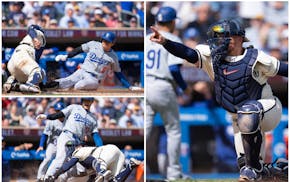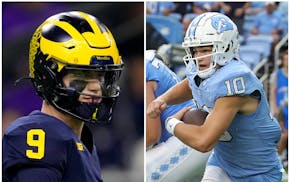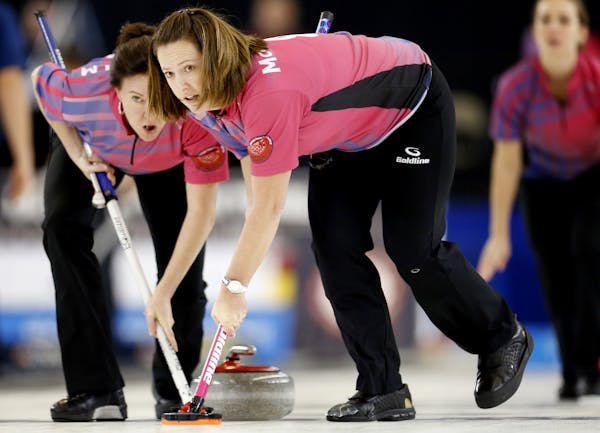SOCHI, RUSSIA – Jeff Isaacson is a two-time Olympian, but few outside of northern Minnesotan probably ever have heard of him. That's because he competes in a sport that offers little in the way of fame, fortune or national attention, except for a temporary spike in curiosity every four years.
He's a curler, the vice skip on John Shuster's U.S. team competing here Monday night against Norway. Isaacson also is a junior high science teacher in the tiny town of Gilbert in northern Minnesota. He loves that job, too, teaching kids Earth science and life science curriculum.
He competes because he loves curling. And competition. He just hopes to break even financially.
"We're certainly not getting rich off this," Isaacson said after arriving in Sochi. "I would be losing money for sure if I wasn't working. I'm working and curling just to stay even, really. It costs a lot of money and a lot of time. We curl because we enjoy the game. It's given me an opportunity to see the world."
Isaacson is not unlike many of the competitors here at these Games. The Olympics, particularly the winter version, provide athletes in non-mainstream sports who otherwise compete in relative obscurity a chance to experience competition on a global stage, if only a fleeting glimpse.
Sure, corporate sponsorships and year-round training have turned the Olympics into lucrative business and made stars of some athletes. But athletes such as Isaacson, with his everyman back story, are what make the Olympics such a compelling event because their stories are fresh and delivered without spin to a mass audience.
"You get here and see everything and it's like, this is what we've been working for the whole time," he said. "It puts in perspective all the hard work and things that we do to get here."
Isaacson, 30, nearly didn't get this opportunity. He contemplated retiring from international competition after a 10th-place finish with Shuster's team at the 2010 Vancouver Olympics. Isaacson decided to give it one more shot after Shuster offered him a spot on this team.
"I was about at the age where maybe it's time to transition to the real world," he said. "The working world."
Isaacson's real world consists of teaching science to sixth- through eighth-graders in the Eveleth-Gilbert system. A retired science teacher is substituting for him while he's at the Olympics. The school held a send-off assembly before Isaacson left at which students presented him a jumbo-sized gold medal and chanted "USA."
"The students were so excited about it," he said. "They all had these signs with my picture on it. What a nice thing they did."
Isaacson admits it's a tough balancing act between teaching — or maintaining any full-time job — and trying to compete in a sport at an Olympic level. For starters, he'll miss a lot of school days while competing in the Olympics and the U.S. Nationals in Philadelphia in early March.
He often returns home from competitions late Sunday night or even early Monday morning. Once, he got to his house 30 minutes before school started, leaving him just enough time to change clothes before dashing to class.
Then, there's the cost. The curlers are on the hook for their own travel expenses until they qualify for the Olympics at the trials. Isaacson and his teammates participated in several competitions in Canada and even Scotland last year.
Expenses add up so team members look for ways to save money. They shop for the cheapest flights and drive when possible, often through the night to avoid having to pay for hotels. They've carpooled to Saskatoon with a camper in tow, stopping at some Canadian campground along the way.
"That's kind of our life," Isaacson said. "We don't have the big bucks like some of these teams [in Europe] where it's their job and life."
Isaacson isn't sure how long he will continue to compete at this level. He's focused solely on these Olympics, a second chance for him and Shuster after a disappointing performance in 2010.
"A lot will be based on our results here," Isaacson said. "If we can have a good showing here, I think a lot of positive will come from that."
Regardless of the outcome, he knows a classroom of kids await his return.
Chip Scoggins chip.scoggins@startribune.com
Scoggins: 'Wait one more year' can't be the Wild's plan. Thankfully, it isn't.

Scoggins: Finch feeling heat of the Suns as playoff battle looms
Scoggins: Why 'championship or bust' fits these Wolves

Scoggins: Anatomy of a game-saving play as Correa throws out Ohtani


